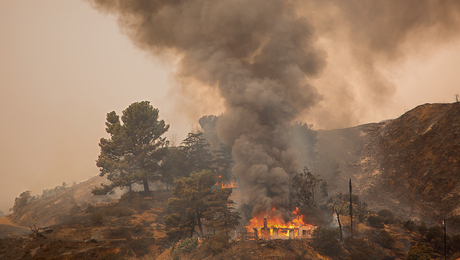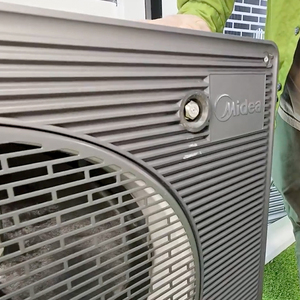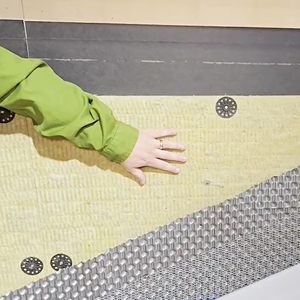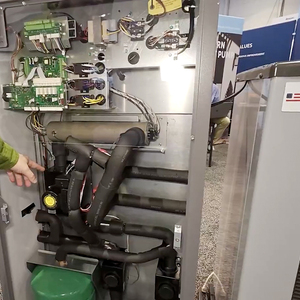I am looking for some kind of “proof” that PVB or backflow prevention is NOT required on residential (1 or 2 family) irrigation systems here on Long Island in Suffolk County Water Authority. SCWA website just says that one is required only if a threat of contamination exists (i.e. attached with chemical injection, etc etc). Everyone I talk to in the irrigation biz says no backflow is required on residential systems. Urban legend gone wild?
Anyone have an actual link to this situation?
Quantum materiae materietur marmota monax si marmota monax materiam possit materiari?



















Replies
Certainly seems to me that backflow out of an irrigation system could cause contamination. I can't imagine the valve (what is it, $10?) not being required. Especially since it also helps protect against freezing.
Yeah, you would think so. (more like $40/$50 for a PVB)
I'm trying to find out the exact facts for around here. Without going to town hall and standing on line all day.
Quantum materiae materietur marmota monax si marmota monax materiam possit materiari?
Does it say anything about vacuum breaker valves being required?I understand that is what is used in some area. It provides some protections, but a lower level than BFP valves..
.
A-holes. Hey every group has to have one. And I have been elected to be the one. I should make that my tagline.
I just now called Suffolk County Water Authority (SCWA 1-631-563-0266) and asked about it. They said that they cannot mandate that a backflow prevention device be installed on residential irrigation systems. According to SCWA, someone challenged the requirement and the NY State Dept of Health ruled that it cannot be required. Though SCWA recommends it be installed, they cannot MAKE you put one in for residential irrigation. For commercial irrigation it is required.
Quantum materiae materietur marmota monax si marmota monax materiam possit materiari?
Call the water utility and ask to speak to the backflow technician. They should be iether in the lab or meter shop.
Irrespective of what the code says, there is no way I wouldn't install some form of a backflow preventer.
You may not be required to have a double check assembly, but you d need something. If you get a backflow contamination, the first point of use is your house.
Amen brother. There are greater concerns in life than a $50.00 valve on an irrigation system. Put the backflow in and forget it.
BTW...IPC requires backflow preventers on lawn irrigation systems, usually atmospheric-type vacuum breaker, pressure-type vacuum breaker, or a reduced pressure principle backflow preventer. Look for anyone these standards on your device: ASSE 1013, ASSE 1020, or ASSE 1015
Which type of backflow preventer works best? lasts longest?
Reduced Pressure principle backflows, (ASSE 1013) protect against backsiphonage and/or backpressure and are installed above ground in a "hot box".
Double check backflow preventers, (ASSE 1015) preotect against backsiphonage and/or backpressure and are also installed above ground in a "hot box"
Pressure vacuum breaker assemblies, (ASSE 1020) protect against backsiphonage only.
Either an ASSE 1013 or ASSE 1015 device would be my choice. Of the two devices I see the ASSE 1013 device used most often in lawn irrigation systems.
Why wouldn't a simple vacuum break suffice?
So convenient a thing it is to be a reasonable Creature, since it enables one to find or make a Reason for everything one has a mind to do. --Benjamin Franklin
By simple do you mean an atmospheric-type vacuum breaker or are you talking about a hose-connection vacuum breaker?
IPC allows an atmospheric-type vacuum breaker (ASSE 1001) as long as chemicals are not introduced into the sprinklers' water distirbution system.
Hose-connection vacuum breakers (ASSE 1011) are not approved devices for automatic multi-head irrigation systems. These are strickly designed for sill cocks or hose threaded laundry faucets and/or garage utility sinks.
The first, I would assume. Though I've several times seen a garden hydrant with screw-on vacuum break, feeding an irrigation system. (Of course, there probably should be a backflow preventer in the line to the hydrant, but that's a different discussion.)
So convenient a thing it is to be a reasonable Creature, since it enables one to find or make a Reason for everything one has a mind to do. --Benjamin Franklin
"garden hydrant with screw-on vacuum break, feeding an irrigation system"
There are freeze-proof wall hydrants with NPT threads that are meant to feed irrigation systems. They also can be fitted with a PVB between the outlet and the irrigation system.
Quantum materiae materietur marmota monax si marmota monax materiam possit materiari?
Inspector704 and DanH: thanks for the discussion guys!
Your welcome.
I would say no matter what your local water authority says put one in for peace of mind. Most areas that I work in require back flow protection if there is any potential for a cross connection between potable and non-potable connections. Luck.
"If all else fails, read the directions"
"if there is any potential for a cross connection between potable and non-potable connections"
That's the rub of it: *IF*. What I keep hearing is that it is such a miniscule chance of anything happenning to cause a backflow, while the irrigation zone valve is open, AND there is something nasty in the irrigation pipes that could poison the municipal water supply.
Not that I agree.
The situations where a residential PVB is required seem to be if the residential system has a chemical injection part of the irrigation system. Or the residential system is connected to both a private well AND the muni water system.
Since it isn't required, and irrigation system companies are in such tight competition no one here includes a PVB in their quotes anymore. Anything to cut back on costs to get the price lower.
Quantum materiae materietur marmota monax si marmota monax materiam possit materiari?
In many areas vacuum breaks are required on sillcocks. Seems to me there's a much greater chance of contamination from an irrigation system than from a sillcock.(Though actually, probably the single greatest factor in causing cross-contamination is the frequence of water pressure outages.)
So convenient a thing it is to be a reasonable Creature, since it enables one to find or make a Reason for everything one has a mind to do. --Benjamin Franklin
My post says put it in anyway to protect you and your family. Without protection anything that is near your irrigation system can be sucked into the potable water; I don't think you want to drink this, your call.
Oh, I agree with you. There does exist a very small chance of that happenning and a $40 or $50 dollar PVB is cheap insurance.
I was just reiterating the explanations/arguments I have heard AGAINST putting one in. Since no one requires it, the irrigation companies do not include one to keep their prices lower. Competition. Also Joe Homeowner usually doens't want it since the water authority doesn't require it, and he doesn't want to pay for anything extra.
Quantum materiae materietur marmota monax si marmota monax materiam possit materiari?
PatchhogPhil: you, and others that replied get the point that a back-flow preventer is cheap insurance, required or not. It is a safety device. I would love to get into an argument with someone thats against them. BTW carbon monoxide detectors are not required in a lot of areas, but a lot of people have died because they wouldn't pay the extra $20-$25 for one. Have a good one......................................
"If all else fails, read the directions"
I was trying to find out specific details on how it came to be that vacuum breaks are not required in this water district (Suffolk County on Long Island, NY). What I was told was that someone challenged the requirement and it was deemed that even tho NY state requires it, the local authorities cannot require it. The water authority told me they recommend and would prefer a vacuum break be installed. They just cannot force residential irrigatrion systems to have one.
Quantum materiae materietur marmota monax si marmota monax materiam possit materiari?
The problem with codes is that they vary depending on the state, county, town, city, etc. The statement..."the local authorities CANNOT require it"...loses me. Bottom line, codes are minimal requirments, does the danger dissipate when you drive out into the rural areas?. IMHO I would go with the safe side. Lots of luck......................................
"If all else fails, read the directions"
I am just as baffled, and I live here!
Quantum materiae materietur marmota monax si marmota monax materiam possit materiari?
They probably make some stupid argument like since it's outside the house it's not subject to "code".
So convenient a thing it is to be a reasonable Creature, since it enables one to find or make a Reason for everything one has a mind to do. --Benjamin Franklin
Wonder what "Ben" would have said!.....................................
"If all else fails, read the directions"
I agree with you and might add that the use of herbicide and pesticides by home owners is another source of ground water contamination. I don't know how many ppm of Roundup, Durspan, Malathion, etc. it would take in your drinking water to cause health problems, but $50 is cheap insurance IMO.
Dave
I completely agree. In my locale (Jax, Florida) not only is it required, it is also required to be tested yearly by a licensed backflow company ($40 as I remember). I have never caught them testing it but they leave a plastic tag with the date. Irrigation valves and heads in the ground = potential for introducing someting nasty into the potable lines. It may be far fetched but a year long bought of explosive diarrhea would make that 50-100$ seem cheap. You'd save that in toilet paper alone!
SCWA website just says that one is required only if a threat of contamination exists (i.e. attached with chemical injection, etc etc).
So they are not worried about bacterialogical contamination from cat, dog or raccoon poo.
SamT
Praise the Corporation, for the Corporations' highest concern is the well being of the public.
PVB??? What's that???
Here an RPZ is required. They cost between $150 and $200 and must be mounted above grade. I googled "RPZ price" and this was the first thign that came up:
http://pexsupply.com/Categories.asp?cID=17
I have no idea what is required in NY.
Since it must be mounted above grade, the PITA about an RPZ is that it must be either removed each winter or mounted in a heated box or heated area.
Edited 6/6/2007 6:54 am ET by Matt
Pressure Vacuum Break
No heated box. Just have inside shutoff valve and a blow-out plug after that but outside before the RPZ or PVB.
Quantum materiae materietur marmota monax si marmota monax materiam possit materiari?
Does a PVB need to be installed above grade?
Edited 6/6/2007 5:11 pm ET by Matt
I am not positive but I think that a PVB is installed above grade. Schematics or pictures I have seen seem to show them above grade and above the irrigation valves.
Atmospheric vacuum breaks are not to be installed under constand water pressure. Altho I did find one installed that way and it does leak around the poppet disc (canopy is missing too).
Quantum materiae materietur marmota monax si marmota monax materiam possit materiari?
I googled to try and find out a bit more about backflow preventors and found this page:
http://www.zurn.com/operations/wilkins/pages/BackFlowPreventers/FAQ_BFP.htm
Really, though I was looking for a summary of types, and found this:
ASSE -1001 Atmospheric-Type Vacuum Breaker
s(AVB)ASSE -1020 Pressure-Type Vacuum Breaker
s(PVB)ASSE -1011 Hose Bib Vacuum Breaker
s(HBVB)ASSE -1013 Reduced-Pressure Principle, Backflow Assembly (RPBA)
ASSE -1015 Double Check Valve Assembly (DCVA)
ASSE -1047 Reduced Pressure Detector Check Assembly (RPDCA)
ASSE -1048 Double Check Detector Check Assembly (DCDCA)
So, now it's all clear as mud...
This document (actually a .ppt) explains things in more basic terms and has some pictures.
And specifically this few sentences were interesting:
"...whenever an irrigation cycle is completed, gravity causes at least some of the water in the pipes to run out onto the ground through the lowest sprinkler head or drip emitter (even if they are only an inch lower). When water runs out a vacuum is created in the pipe. The vacuum sucks stuff from the ground into the pipe through the higher sprinkler heads or emitters. That includes stagnant water, dirt, fertilizer, bacteria, animal waste, and anything else present at ground level."
Phil, would your local county extenion office be able to tell you one way or another of the legality requirement, if any? Also, if there were widespread abuses by installers I would think the county would force an inspection period and define guidelines leading up to said inspection.
I'm figurin` since the local authorities cannot require some form of backflow prevention on residential irrigation systems (that have no chemical injection, and are not also connected to a pump or well system), technically there are no "abuses" by installers.
Not sure how the legal wranglers challeged the requirement of backflow protection. It could be satisfied by a $50 PVB.
Quantum materiae materietur marmota monax si marmota monax materiam possit materiari?